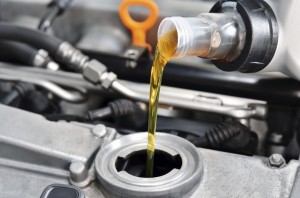When the subject of frequency of oil change for cars is discussed, many mechanics and car aficionados agree that it is not how often you drive that you should periodically change oil. The amount that people drive varies because of their daily activities. Some people have to drive very far distances to and from work, while others rarely drive as they work at home or very nearby where they live. The truth of the matter about changing oil is that it depends on the number of miles that your vehicle has travelled. To understand how often you should change your oil, you must first know why an oil change is necessary in the first place.
Why Are Oil Changes Necessary?
The lifeblood of your car’s engine is its oil and it has two major functions. The first is it creates a cushion that effectively reduces friction between body parts. The next function is that it carries away impurities from moving parts and collects it in your car’s oil filter, while the remaining filtered oil repeats the process of cleansing your car over and over again. The oil in your car contains numerous additives such as:
- Corrosion-Fighting Ingredients
- Polymers
- Detergents
These additives in the oil work to increase the level of performance that allows your car to be effectively cleansed. When the oil in your car is used repeatedly over a long period of time, it accumulates a substantial amount of impurities that causes the oil to turn dark in color. When these impurities accumulate, they can cause more heat accumulation inside the engine that allows corrosion to form. When corrosion forms inside the engine, this compromises engine life. This is why oil changes are absolutely necessary.
Consequences of Not Changing Oil Regularly
When you fail to change you oil regularly, the oil in your car becomes almost as thin as water. When it reaches this state, the oil in your car is unable to provide the necessary lubrication that allows the pistons, valves, and cylinders to work optimally. When these parts fail to work properly, your car will eventually cease to work. This is a very serious matter because car repair will cost you an arm and a leg. There are also other consequences in failing to change your car oil regularly. Among these consequences are:
- Your car oil will get significantly thicker, which compromises its ability to effectively cleanse your engine of impurities.
- The engine itself will become dirty. This leads to numerous engine problems such as:
√ Overheat
√ Engine Failure
√ Piston Malfunction
√ Smoke Belching
√ Cylinder Malfunction
√ Sludge Accumulation
When Should You Change Oil?
Car manufacturers have different suggestions of when to change car oil. Some suggest after 3,000 miles, while others suggest 7,000 miles. The generally accepted practice is to have your car serviced after 3,000 to 4,000 miles to ensure the performance of the engine.
Contact a Trusted Automotive Member at Team Dave Logan For Help!

